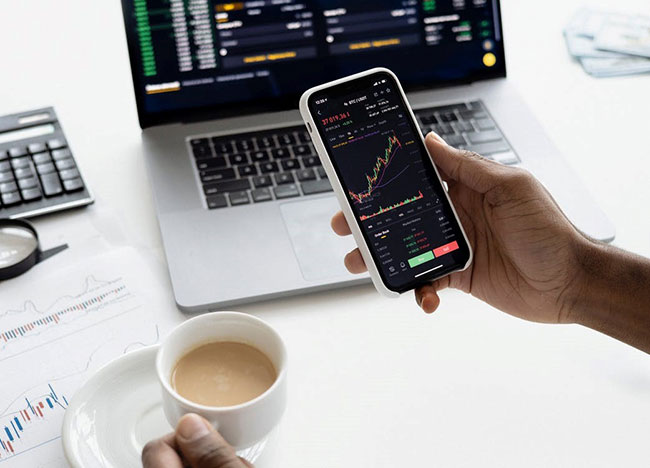How can you trade CFDs?

Previously the best trading opportunities were limited to traders sitting in banks and big institutions. With the numerous developments in finance and technology, access to markets is available worldwide. Nowadays, investors can use their mobile phones to scan the prices and open and manage their trades.
CFD trading is one of the byproducts of this outburst of technology. This trading form allows investors to open and close their positions without holding the asset in physical or digital format. When traders open a trade on a CFD instrument, they can speculate on the price as it moves up or down. By doing so, they can earn a profit similar to trading real market.
To understand better, let us consider a market participant who opens a buy position of 1 lot on EURUSD at 1.13000. The currency pair moves up, favoring the trader for ten pips and earning him $100 in reward. Losses can incur if the asset moves toward the short side, where a five pip loss would equal $50 in deficit.
CFD brokers
CFD exchanges or brokers allow traders to speculate on various CFD products. It is vital to open a trading account with a specific brokerage before trading. The process is simple where the company requires proper credentials from an investor. After signing up and depositing a sufficient amount of cash, traders can perform their analysis on the respective charts. A wide variety of platforms are available with CFD trading.
Characteristics of CFD Trading
A few common analogies in CFD trading are essential to understand for anyone new to the industry.
Speculation
Unlike other markets that allow traders to speculate the market in a single direction with CFDs, it is possible to go long and short on an asset. This allows traders to analyze the market both ways.
Liquidity
Some traders may complain about late fills within CFD trading due to low volume. The truth is there is a lot of volume available with the right broker. Traders have to select the right company which comes under regulation.
Regulation
CFD trading is subjected to regulation by authorities worldwide. Multiple regulators look over CFD brokers and make sure that they are not double-crossing investors. Some important names of these regulators are Financial Conduct Authority (FCA) and Prudential Regulation Authority (PRA), Australian Securities and Investment Commission (ASIC), and Cyprus Securities and Exchange Commission (CySEC).
Order
Many trading orders come with CFD trading. Traders have access to stop, limit, good till canceled, and other types of executions. It is also possible to use hedging, averaging, and martingale strategies.
Instrument
A CFD broker is not limited in terms of presenting multiple instruments to traders under a single platform. Investors can access stocks, indices, currencies, futures, etc., eliminating the need to sign up under numerous exchanges.
Access to leverage
CFD trading provides one of the best leverage in the markets for those who crave opening big lot positions. Traders can use anywhere from 1:1 till 1:3000 with most companies. It is also essential to be careful in this regard, as using a significant margin can also hurt your trading account.
Should you trade using CFDs?
Trading with CFDs is generally beneficial for traders, especially for the ones looking to employ algorithms. However, at the same time, it is more than essential to choose a regulated broker and reasonable margin.
Being able to speculate the market on both long and short sides is a plus, but the implementation of risky strategies such as hedging and martingale can be detrimental. With proper risk management, strategy and mindset, CFD trading can be beneficial in the long term.
